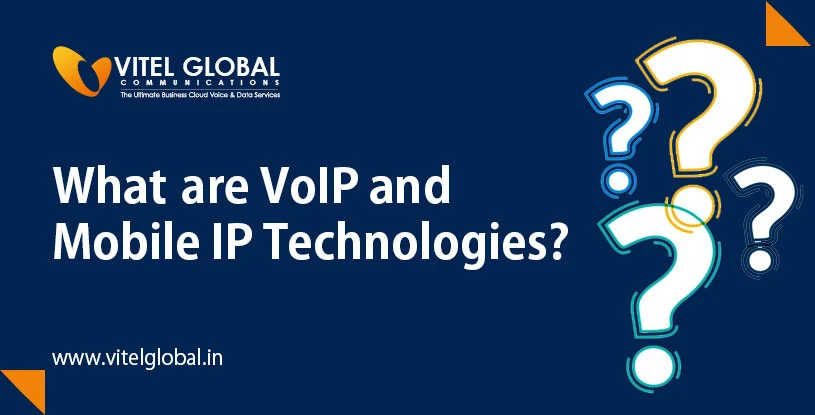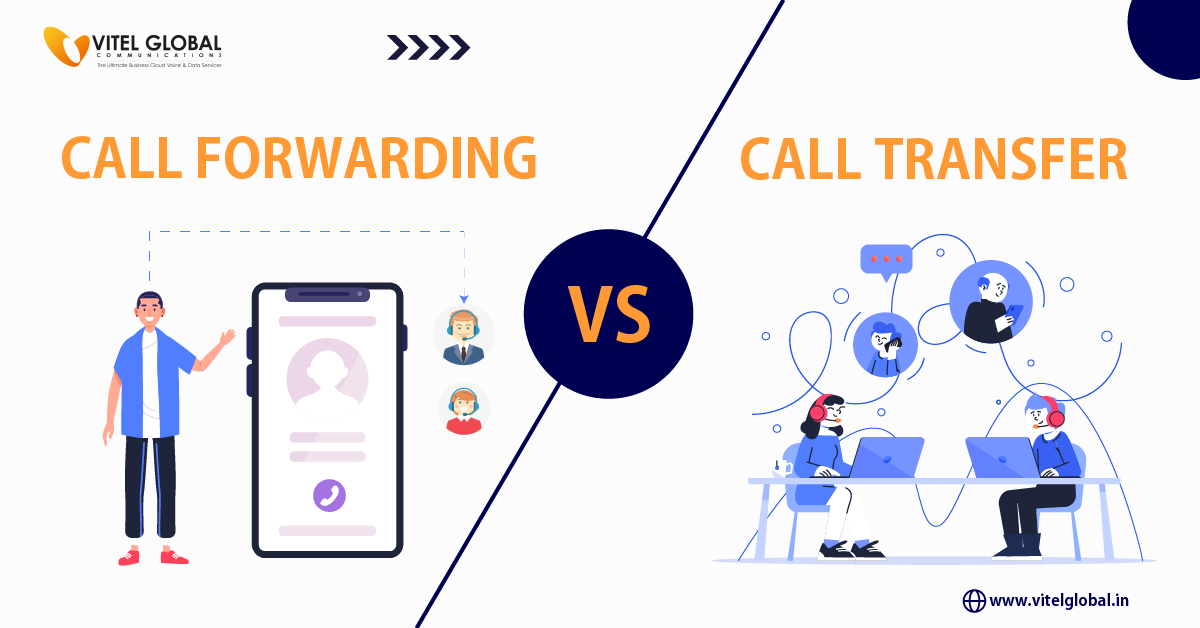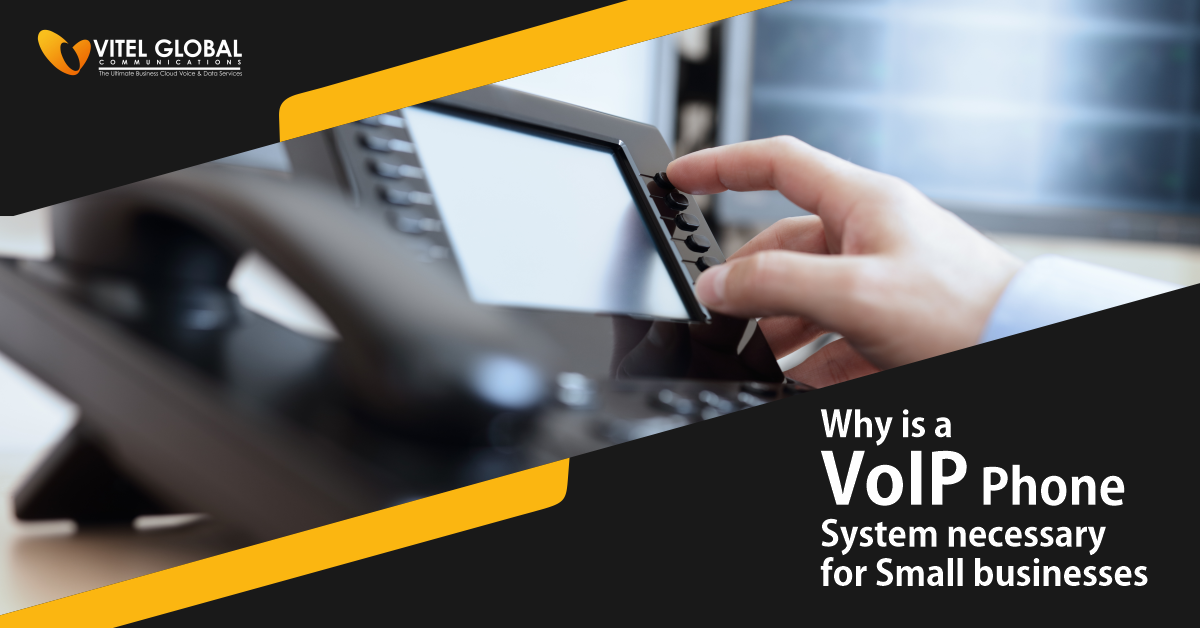Voice over Internet Protocol (VoIP) refers to technologies that enable voice communication over the Internet, by converting analogue voice signals into digital IP packets. Mobile IP technologies allow seamless connectivity and reachability for mobile devices as they connect across different wireless networks.
Previous communication systems relied solely on traditional copper-wire-based telephone networks for transmission. However, the emergence of VoIP and Mobile IP have enabled modern alternatives, giving rise to ubiquitous mobile phones that users can easily take with them on the go.
What are VoIP and Mobile IP Technologies?
A technology called Voice over Internet Protocol makes it possible to have multimedia sessions and voice conversations via the Internet. Unlike traditional telephone networks, which rely on circuit-switched networks, virtual phone services utilize packet-switched networks to transmit voice data as digital signals. The fundamental process involves converting analogue voice signals into digital data packets. Transmitting them over the internet and then re-converting them into analogue signals at the receiving end. This digital transformation allows for more efficient use of network resources and facilitates a wide range of communication features.
On the other hand, Mobile IP technologies allow mobile devices, such as smartphones and tablets, to maintain connectivity as they move across different networks. These innovations ensure seamless communication for users on the go. Mobile IP achieves this by enabling a mobile device. To maintain its IP address even when transitioning between different networks through the use of a home network, a home agent, and a foreign agent. This ensures that the device remains reachable regardless of its physical location.
The Fundamentals of VoIP Technology
The fundamentals of Voice over the Internet lie in its ability to revolutionize traditional voice communication by transmitting audio as data packets over the Internet. Here’s an exploration of the key elements that form the foundation of virtual phones.
Digital Transformation
This phone operates on the principle of converting analogue voice signals into digital data. Unlike traditional Public Switched Telephone Networks (PSTN), where voice signals travel as electrical pulses over circuit-switched networks, virtual phone digitizes these signals into packets of data.
VoIP Protocols
It relies on various protocols to manage the transmission of voice data. The two primary protocols are the Session Initiation Protocol (SIP), responsible for initiating, maintaining, modifying, and terminating real-time sessions. And the Real-time Transport Protocol (RTP), which carries the voice data.
Quality of Service (quality of service)
Maintaining a high-quality voice transmission is crucial in virtual phones. Quality of Service mechanisms prioritize voice traffic over data, ensuring minimal latency, jitter, and packet loss.
Internet Connectivity
It relies on internet connectivity for transmitting voice data. Whether through broadband, Wi-Fi, or mobile data networks, a stable and reliable internet connection is fundamental to the success of internet phone services.
VoIP Devices
Access of internet phone through various devices, including computers, smartphones, dedicated virtual phones, and even traditional phones equipped with analogue telephone adapters.
Infrastructure
Implementing business phone requires a robust network infrastructure. It includes routers, switches, and gateways that facilitate the flow of data packets between devices.
Emergency Services and E911
These services have evolved to provide access to emergency services. Enhanced 911 (E911) capabilities enable VoIP providers to internet calling solutions to transmit the caller’s location information to emergency responders, ensuring a timely and accurate response.
Fundamentals of Mobile IP Technologies
Mobile technology is a broad and rapidly evolving field that encompasses a range of devices, networks, and applications designed to provide users with connectivity and access to information while on the move. Here are the key fundamentals of mobile tech.
Wireless Communication
Unlike traditional telecommunication, mobile tech relies on wireless communication. Cellular networks, including 2G, T3G, 4G/LTE, and 5G, facilitate voice and data transmission between mobile devices and network infrastructure. Wi-Fi and Bluetooth are additional wireless communications commonly used for local connectivity.
Mobile Applications
Apps, or mobile applications, are software packages designed specifically for mobile devices. These apps serve various purposes, from communication and productivity to entertainment and health. App stores, such as the Apple App Store and Google Play Store, provide platforms for users to discover and download apps.
Mobile Internet
Mobile technology enables internet access on the go. Users can browse websites, check emails, and access cloud-based services using mobile data networks or Wi-Fi. Mobile browsers and data optimization communications enhance the internet experience on smaller screens.
Location-Based Services (LBS)
Mobile devices incorporate GPS (Global Positioning System) technology to provide location-based services. It enables applications such as mapping, navigation, and location-aware advertising, enhancing user experiences and convenience.
Mobile Security
With the increasing use of mobile devices for sensitive activities, mobile security is a critical aspect of mobile tech. Security features include biometric authentication (fingerprint, face recognition), device encryption, secure boot processes, and mobile antivirus applications.
Cloud Computing
Mobile tech is increasingly merging with cloud computing services. Cloud storage allows users to store and access data remotely, facilitating seamless synchronization across multiple devices.
Updates and Upgrades
Mobile technology is subject to frequent updates and upgrades, both in terms of hardware and software. Manufacturers release new devices with enhanced features, and software updates provide improved security, performance, and additional functionalities.
Benefits of VoIP
VoIP calls are merged with more advanced features like DND means do not disturb, parallel ringing, blocking, virtual number, two simultaneous calls, automatic call forward, conference calls, voicemail, follow me, and many others.
Cost
The cost setup for traditional landlines is high compared to the virtual phone system. VoIP setup is extremely easy and charges zero cost as it doesn’t have any hardware setup. No maintenance costs are incurred for virtual phone calls, but maintenance costs are expensive for landlines.
Technology
Landlines do not use any technology for making and receiving calls, but the virtual phone system works on a cloud basis, which operates and accesses data over the cloud servers.
Cloud technology is an advanced technology that saves huge costs operated and maintained by VoIP providers.
Reliability
Landlines deliver reliable services as the communication delivered on both sides is highly secured, whereas internet telephone call reliability and security depend on the services delivered by the virtual phone service providers, which can be altered according to your requirements.
Communication
Traditional phone systems use analogue signals for communication or making and receiving calls transmitted through copper wires.
These phone systems use digital signals or data packets over the internet. So, it depends on the internet service provider to deliver data packets without missing them.
Expandability
The traditional phone system is not highly scalable because we need to add additional physical lines for extra numbers, whereas VoIP phones require no additional phone lines for extra numbers. Digital upgrades and maintenance are not required to be done manually but are done automatically. It is highly scalable with a low cost that meets your domestic needs.
Voice Quality
Voice quality is the strongest key point that focuses on any type of communication tool you are using for your personal needs. It depends on the better internet service providers who deliver high-definition voice quality in both local and international calls. When you come to landlines, they deliver good voice quality, but when you come to international calls, you may find a low-quality voice with jitters and latencies.
Network congestion
This tech depends on good network connections to avoid congestion during calls, whereas landlines require extension numbers for making out of local areas which may connect or may not connect a few times.
Mobile integration
Landlines follow a very conventional approach for making calls that don’t implement the latest technology, but virtual phone calls implement the modern approach for making and receiving calls that are integrated with many benefits that couldn’t be delivered by traditional phones.
For example, just install the business phone app on your mobile and make easy calls to your close ones that cannot be achieved through analogue phones. So, make unlimited calls using handy technology whenever and wherever across the globe.
No Boundaries, No Limits: Enjoy Unlimited VoIP Calling to the USA
Conclusion
VoIP and Mobile IP technologies have revolutionized the way we communicate, offering cost-effective, flexible, and efficient solutions for both personal and business interactions. As these technologies continue to evolve, we can expect further integration, enhanced features, and an even more interconnected world where communication knows no bounds. Embracing these advancements ensures that we stay at the forefront of a digital era where communication is not just a tool but a transformative experience.







